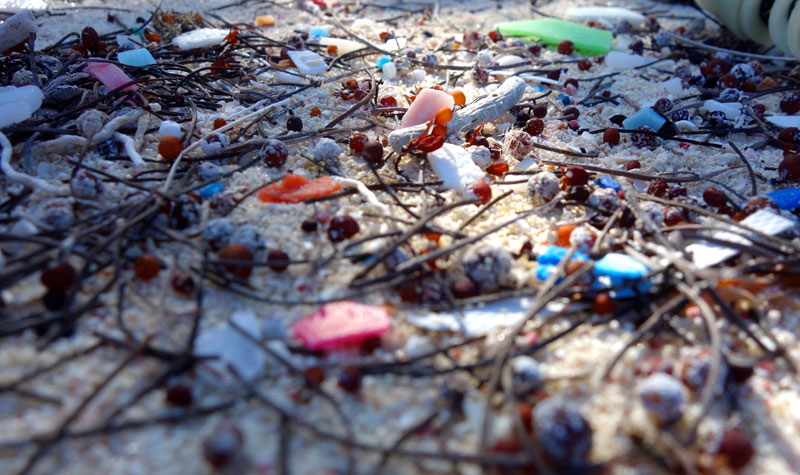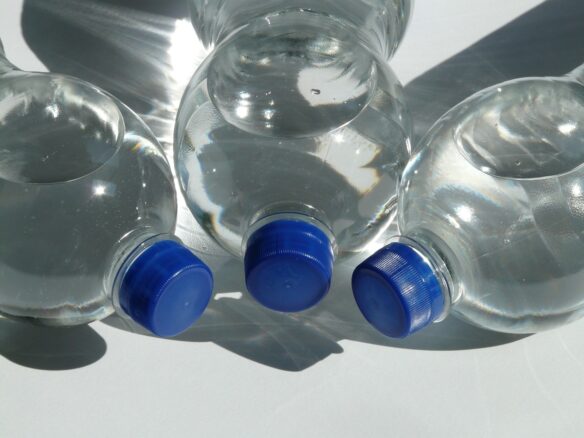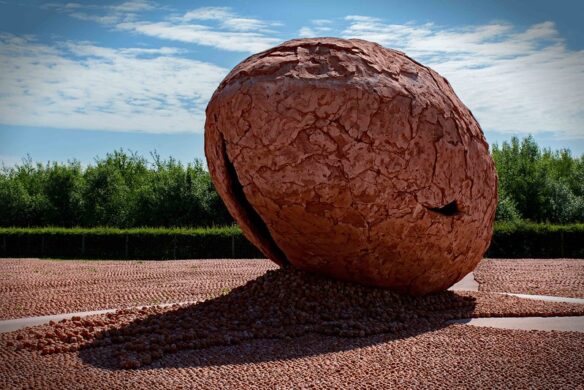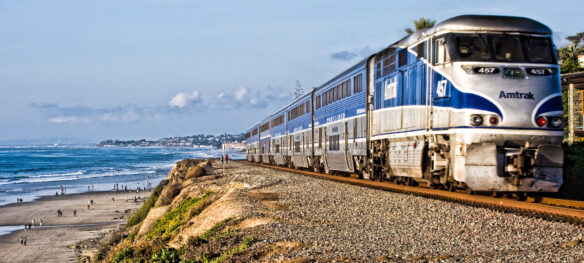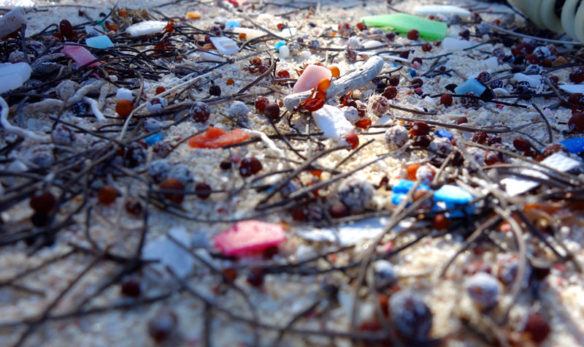
“The unprecedented plastic waste tide plaguing our oceans and shores, can become as limited as our chosen relationship with plastics, which involves a dramatic behavioral change on our part…”
Captions and Photo: © SAF — Coastal Care
Excerpts;
Microplastics, which are particles measuring less than 5 mm, are of increasing concern. They not only become more relevant as other plastic marine litter breaks down into tiny particles, they also interact with species in a range of marine habitats. A new study takes a look at how global climate change and the impact of changing ocean circulation affects the distribution of marine microplastic litter…
Read Full Article, Science Daily (04-25-2017)
Video captures moment plastic enters food chain, BBC News (03-11-2017)
A scientist has filmed the moment plastic microfibre is ingested by plankton, illustrating how the material is affecting life beneath the waves. The footage shows one way that plastic waste could be entering the marine and global food chain…
The Ocean Is Contaminated by Trillions More Pieces of Plastic Than Thought, IOP Science (12-08-2015)
This new study suggests there are 15 to 51 trillion micro plastic particles (those less than 200 millimeters in size) in the world’s oceans, weighing between 93 and 236,000 metric tons. This is about seven times more than scientists had previously estimated…
Microplastic particles threaten fish larvae; Science Daily (06-03-2016)
Researchers have found that larval fish exposed to microplastic particles during development displayed changed behaviors and stunted growth which lead to greatly increased mortality rates…
Microplastics Worse For Crabs And Other Marine Life Than Previously Thought; Science Daily (07-18-2014)
The tiny plastic particles polluting our seas are not only orally ingested by marine creatures, but also enter their systems through their gills, according to a new study…
Fish eat plastic like teens eat fast food, researchers say, BBC News (06-02-2016)
Young fish become hooked on eating plastic in the seas in the same way that teenagers prefer unhealthy fast food, Swedish researchers have said…
Plastic Contaminates Ocean Sourced Table Salt, Scientific American (10-30-2015)
When researchers analyzed fifteen brands of common table salt bought at supermarkets across China, they found among the grains of seasoning micro-sized particles of plastic. The highest level of plastic contamination was found in salt sourced from the ocean…
People may be breathing in microplastics, health expert warns; Guardian UK (05-10-2016)
People could be breathing in microparticles of plastic, according to a leading environmental health expert, with as yet unknown consequences on health…
Biodegradable Plastics Are Not the Answer to Reducing Marine Litter, UN News Center (11-23-2015)
Widespread adoption of products labelled ‘biodegradable’ will not significantly decrease the volume of plastic entering the ocean or the physical and chemical risks that plastics pose to marine environment, concluded a UN report released today…
UN Declares War on Ocean Plastic, UNEP (02-23-2017)
Plastic Pollution / When The Mermaids Cry: The Great Plastic Tide, Coastal Care ©-2009
To clean up ocean plastics, increase focus on coasts, Science Daily (01-19-2016)
The most efficient way to clean up ocean plastics and avoid harming ecosystems is to place plastic collectors near coasts, according to a new study…
Loving the Ocean Starts at Home, National Geographic (09-08-2016)

